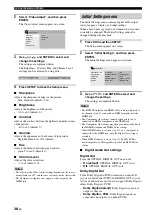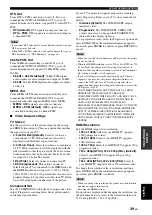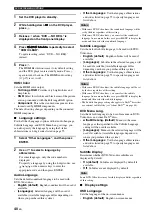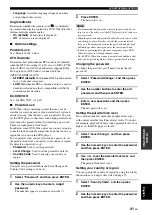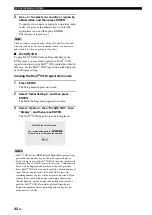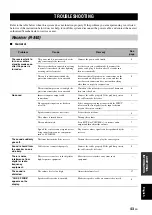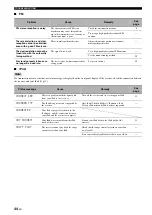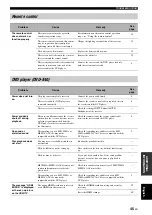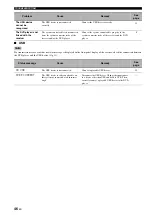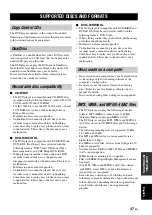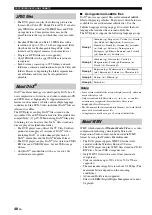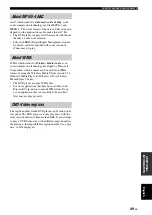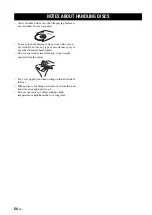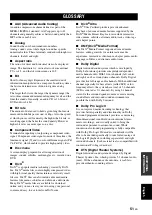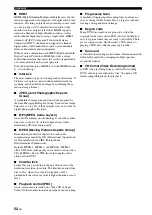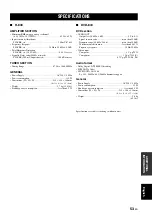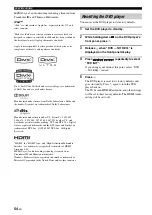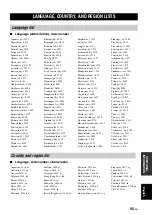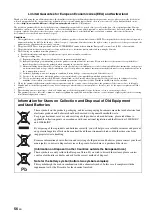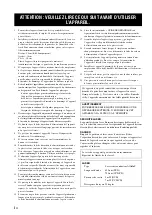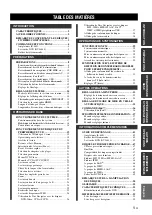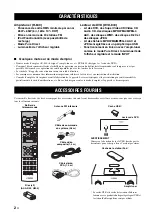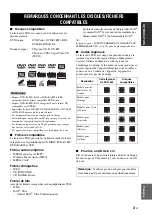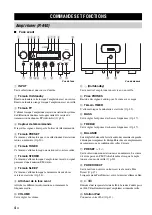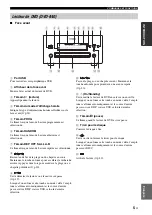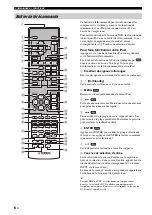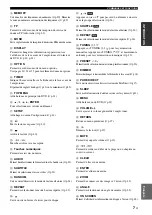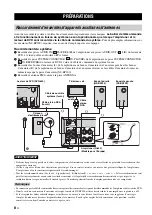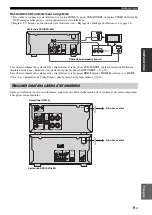
52
En
GLOSSARY
■
HDMI
HDMI (High-Definition Multimedia Interface) is the first
industry-supported, uncompressed, all-digital audio/video
interface. Providing an interface between any source (such
as a set-top box or AV controller) and an audio/video
monitor (such as a digital television), HDMI supports
standard, enhanced or high-definition video as well as
multi-channel digital audio using a single cable. HDMI
transmits all ATSC (Advanced Television Systems
Committee) HDTV standards and supports 8-channel
digital audio, with bandwidth to spare to accommodate
future enhancements and requirements.
When used in combination with HDCP (High-bandwidth
Digital Content Protection), HDMI provides a secure
audio/video interface that meets the security requirements
of content providers and system operators.
For further information on HDMI, visit the HDMI website
at “www.hdmi.org/”.
■
Interlace
The most common type of scanning used in televisions. It
divides a screen into even and odd numbered fields for
scanning, and then builds an image by combining them
into one image (frame).
■
JPEG (Joint Photographic Experts
Group)
A standardized image compression system proposed by
the Joint Photographic Experts Group. It can reduce image
data sizes to 1 to 10% of their original sizes, and works on
digital photographs effectively.
■
MP3 (MPEG Audio Layer-3)
An audio file compression technology. It can reduce audio
data sizes to about 10% of their original sizes while
maintaining CD-level audio quality.
■
MPEG (Moving Pictures Experts Group)
International standard for digital video and audio
compression generated by ISO (International Organization
for Standardization) and IEC (International
Electrotechnical Commission).
Includes MPEG-1, MPEG-2, and MPEG-4. MPEG-1
offers VHS level video quality and is often used on video
CDs. MPEG-2 offers S-VHS level video quality and is
often used on DVDs.
■
Parental lock
Limits Disc play according to the age of the users or the
limitation level in each country. The limitation varies from
disc to disc; when it is activated, playback will be
prohibited if the software’s level is higher than the user-set
level.
■
Playback control (PBC)
An on-screen menu recorded on a Video CD or Super
Video CD that enables interactive playback and searching.
■
Progressive Scan
A method of displaying all scanning lines in a frame at
once, reducing flicker noticeable on a larger screen and
creating a sharp and smooth image.
■
Region code
Many DVD discs include a region code so that the
copyright owner can control DVD software distribution
only to regions where they are ready to distribute. There
are six regions codes, which restrict a DVD player to
playing a DVD disc with the same region code.
■
Surround
A controller for creating realistic three-dimensional sound
fields full of realism by arranging multiple speakers
around the listener.
■
VR format (Video Recording format)
A DVD video recording format, which allows editing
DVD video data recorded onto a disc. You need a VR
format compatible player for playback.

